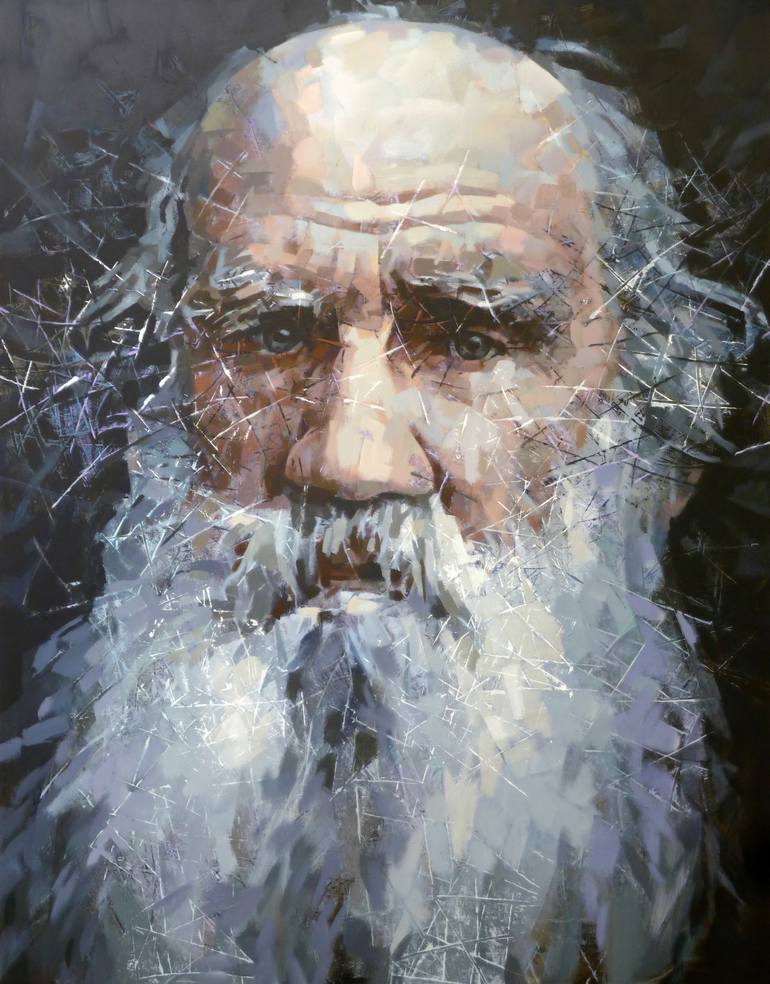Leo Tolstoy Archive
Written: 1889
Source: Original text from Gutenberg.org, translated by Benjamin Tucker, the American Anarchist
Transcription/Markup: Andy Carloff
Online Source: RevoltLib.com; 2021

It was disappointing to the Stary Tchert (Old Devil) that the brothers did not quarrel over the division of the property, and that they separated peacefully; and he cried out, calling his three small devils (Tchertionki).
“See here,” said he, “there are living three brothers—Simeon the soldier, Tarras-Briukhan, and Ivan the Fool. It is necessary that they should quarrel. Now they live peacefully, and enjoy each other’s hospitality. The Fool spoiled all my plans. Now you three go and work with them in such a manner that they will be ready to tear each other’s eyes out. Can you do this?”
“We can,” they replied.
“How will you accomplish it?”
“In this way: We will first ruin them to such an extent that they will have nothing to eat, and we will then gather them together in one place where we are sure that they will fight.”
“Very well; I see you understand your business. Go, and do not return to me until you have created a feud between the three brothers—or I will skin you alive.”
The three small devils went to a swamp to consult as to the best means of accomplishing their mission. They disputed for a long time—each one wanting the easiest part of the work—and not being able to agree, concluded to draw lots; by which it was decided that the one who was first finished had to come and help the others. This agreement being entered into, they appointed a time when they were again to meet in the swamp—to find out who was through and who needed assistance.
The time having arrived, the young devils met in the swamp as agreed, when each related his experience. The first, who went to Simeon, said: “I have succeeded in my undertaking, and to-morrow Simeon returns to his father.”
His comrades, eager for particulars, inquired how he had done it.
“Well,” he began, “the first thing I did was to blow some courage into his veins, and, on the strength of it, Simeon went to the Czar and offered to conquer the whole world for him. The Emperor made him commander-in-chief of the forces, and sent him with an army to fight the Viceroy of India. Having started on their mission of conquest, they were unaware that I, following in their wake, had wet all their powder. I also went to the Indian ruler and showed him how I could create numberless soldiers from straw.
“Simeon’s army, seeing that they were surrounded by such a vast number of Indian warriors of my creation, became frightened, and Simeon commanded to fire from cannons and rifles, which of course they were unable to do. The soldiers, discouraged, retreated in great disorder. Thus Simeon brought upon himself the terrible disgrace of defeat. His estate was confiscated, and to-morrow he is to be executed. All that remains for me to do, therefore,” concluded the young devil, “is to release him to-morrow morning. Now, then, who wants my assistance?”
The second small devil (from Tarras) then related his story.
“I do not need any help,” he began. “My business is also all right. My work with Tarras will be finished in one week. In the first place I made him grow thin. He afterwards became so covetous that he wanted to possess everything he saw, and he spent all the money he had in the purchase of immense quantities of goods. When his capital was gone he still continued to buy with borrowed money, and has become involved in such difficulties that he cannot free himself. At the end of one week the date for the payment of his notes will have expired, and, his goods being seized upon, he will become a bankrupt; and he also will return to his father.”
At the conclusion of this narrative they inquired of the third devil how things had fared between him and Ivan.
“Well,” said he, “my report is not so encouraging. The first thing I did was to spit into his jug of quass [a sour drink made from rye], which made him sick at his stomach. He afterwards went to plow his summer-fallow, but I made the soil so hard that the plow could scarcely penetrate it. I thought the Fool would not succeed, but he started to work nevertheless. Moaning with pain, he still continued to labor. I broke one plow, but he replaced it with another, fixing it securely, and resumed work. Going beneath the surface of the ground I took hold of the plowshares, but did not succeed in stopping Ivan. He pressed so hard, and the colter was so sharp, that my hands were cut; and despite my utmost efforts, he went over all but a small portion of the field.”
He concluded with: “Come, brothers, and help me, for if we do not conquer him our whole enterprise will be a failure. If the Fool is permitted successfully to conduct his farming, they will have no need, for he will support his brothers.”